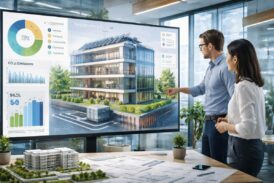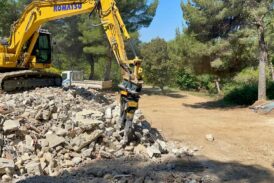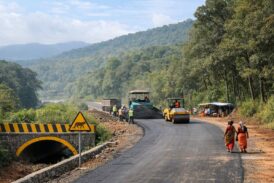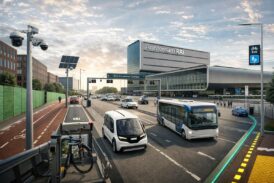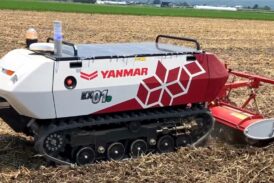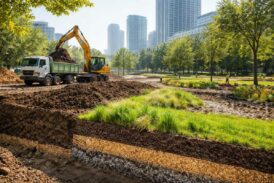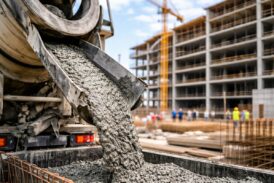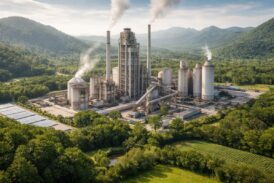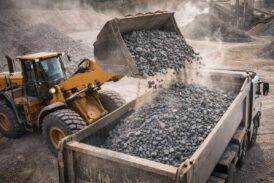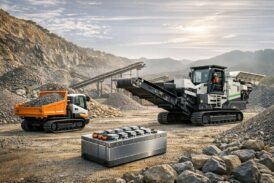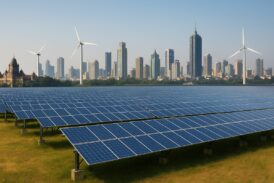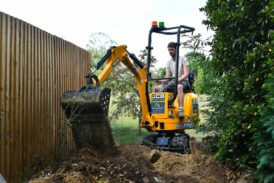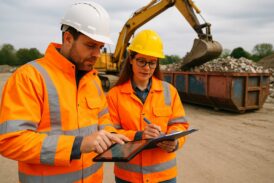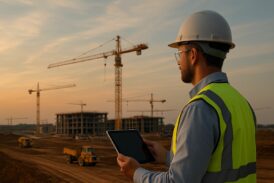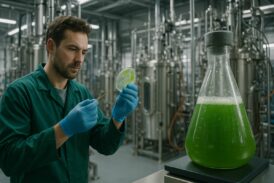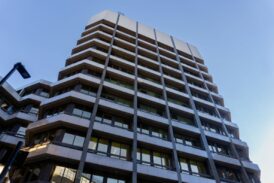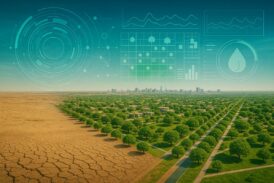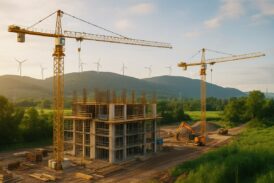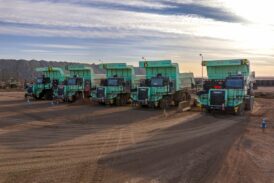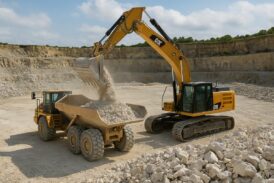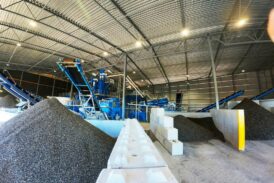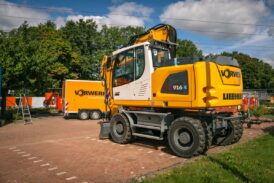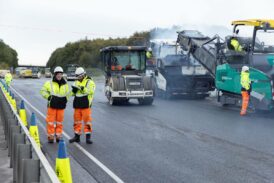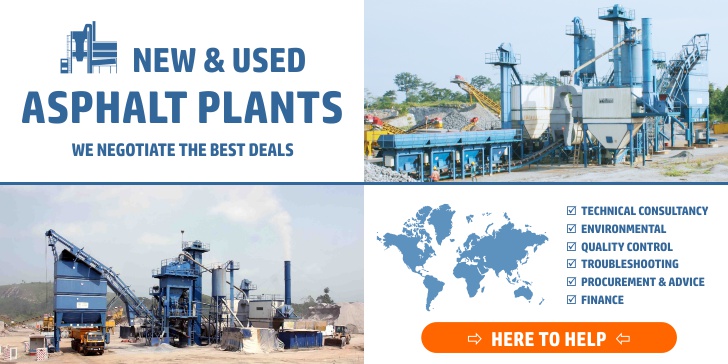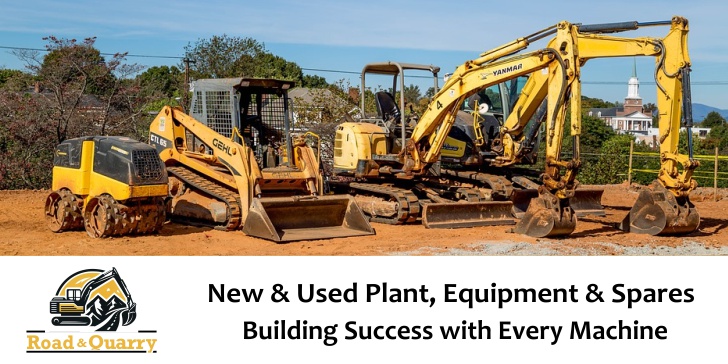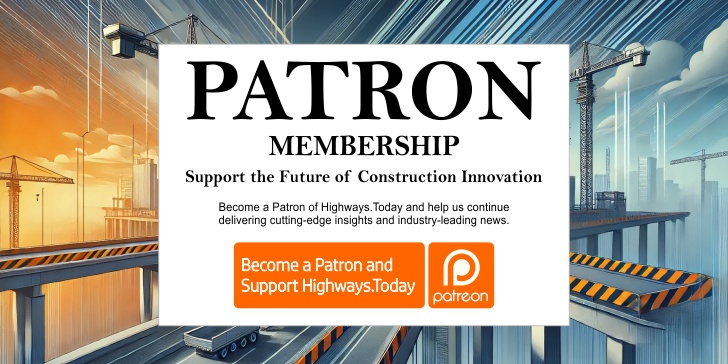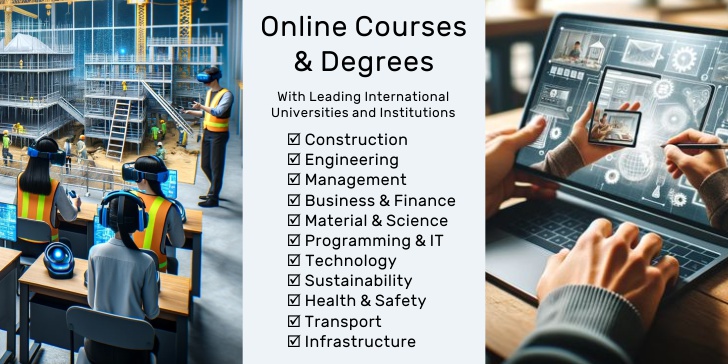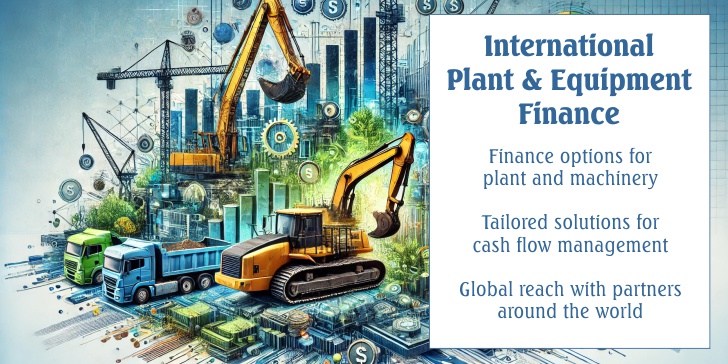
Sustainability Month
Welcome to Sustainability & Climate Resilience Month at Highways Today! We are dedicating our focus this month to the innovative practices and cutting-edge technologies that are shaping the future of construction. Sustainable construction is not just a trend but a necessity for a greener, more resilient world.
From eco-friendly materials and energy-efficient designs to renewable energy sources and waste reduction techniques, sustainable construction aims to minimize the environmental impact of building projects. Join us as we explore the latest advancements, share success stories, and highlight the efforts of industry leaders committed to building a sustainable future.
Let’s work together to pave the way for construction that respects and protects our planet.

Top Sustainable Construction Trends
The construction industry is undergoing a transformative shift towards sustainability, driven by the urgent need to reduce environmental impacts and build resilient infrastructure. This movement is characterized by several key trends that are shaping the future of sustainable construction. From innovative materials and energy-efficient designs to smart technologies and circular economy principles, these trends are not only reducing carbon footprints but also enhancing the overall efficiency and sustainability of construction projects.
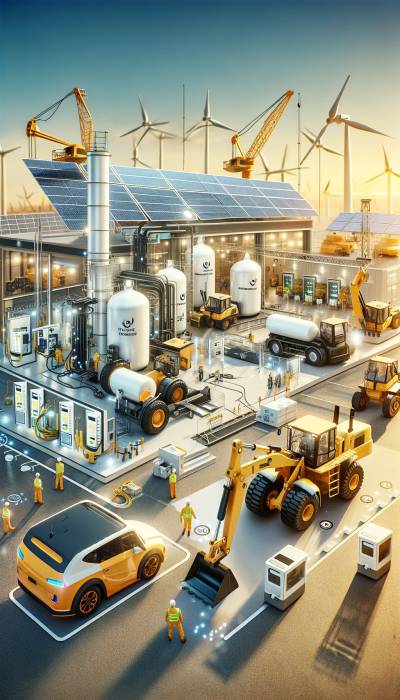
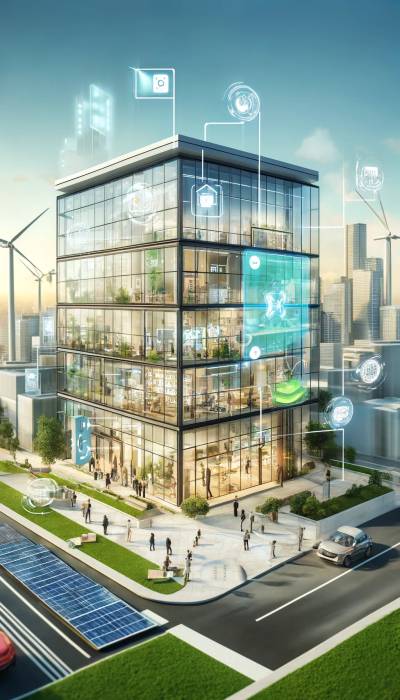
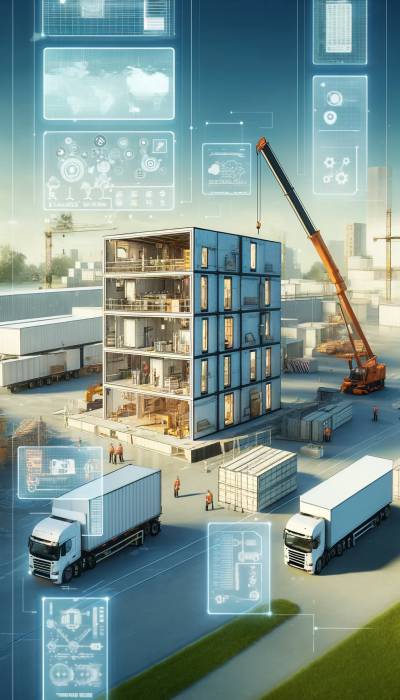
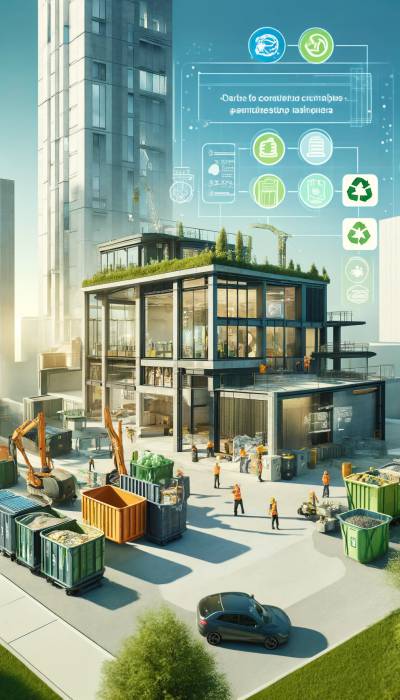
Electric and Hydrogen Construction Equipment
The shift towards electric and hydrogen-powered construction equipment is revolutionizing the industry. Electric excavators, bulldozers, and loaders produce zero emissions, reducing the environmental footprint of construction activities. Hydrogen fuel cells offer a high energy density and quick refuelling, making them a viable alternative to traditional diesel engines.
These technologies not only cut down on greenhouse gas emissions but also decrease operational noise, benefiting urban construction sites.
Advanced Machine Controls for Construction Equipment
The implementation of advanced machine controls enhances the efficiency and productivity of construction equipment. GPS-guided systems, automated grading, and telematics are some of the technologies being integrated into modern machinery. These controls improve precision, reduce material waste, and optimize fuel consumption, leading to more sustainable construction practices.
Modular and Prefabricated Construction
Modular and prefabricated construction methods are gaining traction for their sustainability benefits. These methods involve constructing building components off-site in a controlled environment, reducing waste and improving efficiency. Prefabricated buildings can be quickly assembled on-site, minimizing construction time and environmental disruption.
Energy-Efficient Buildings
Energy efficiency is a cornerstone of sustainable construction. Techniques such as passive solar design, high-performance insulation, and energy-efficient windows significantly reduce energy consumption. Additionally, the integration of renewable energy sources, like solar panels and wind turbines, into building designs helps achieve net-zero energy buildings.
Smart Building Technologies
The adoption of smart building technologies is enhancing the sustainability and efficiency of construction projects. These technologies include IoT-enabled devices, smart thermostats, and automated lighting systems that optimize energy use. Building Information Modeling (BIM) is also crucial, enabling precise planning and resource management throughout the building lifecycle.
Smart Building Technologies
The adoption of smart building technologies is enhancing the sustainability and efficiency of construction projects. These technologies include IoT-enabled devices, smart thermostats, and automated lighting systems that optimize energy use. Building Information Modeling (BIM) is also crucial, enabling precise planning and resource management throughout the building lifecycle.
Water Conservation Techniques
Water conservation is a critical aspect of sustainable construction. Innovative techniques such as rainwater harvesting, greywater recycling, and the installation of low-flow fixtures help reduce water consumption. Green roofs and permeable pavements also play a role in managing stormwater and reducing runoff.
Circular Economy and Waste Reduction
The construction industry is increasingly adopting circular economy principles, which focus on reducing, reusing, and recycling materials. This approach minimizes waste and promotes the efficient use of resources. Companies are also implementing deconstruction practices, where building materials are carefully dismantled and repurposed for future projects.
The top trends in sustainable construction are redefining the industry’s approach to building and development. By incorporating green materials, energy-efficient designs, smart technologies, and circular economy principles, construction companies are not only reducing their environmental impact but also creating more resilient and efficient structures. The advent of electric and hydrogen-powered equipment and advanced machine controls further enhances sustainability, setting new standards for innovation and environmental stewardship. As these trends continue to evolve, they offer a promising path towards a more sustainable future in construction, inspiring industry-wide change and paving the way for a greener, more resilient planet.

Top 10 Resources for Sustainable Construction Practices
As the construction industry increasingly prioritizes sustainability, numerous resources have emerged to help companies implement and enhance sustainable construction practices. These resources provide valuable guidance, tools, and best practices for companies looking to reduce their environmental impact and improve their sustainability performance.
Here are the top 10 resources for companies looking to engage in sustainable construction.
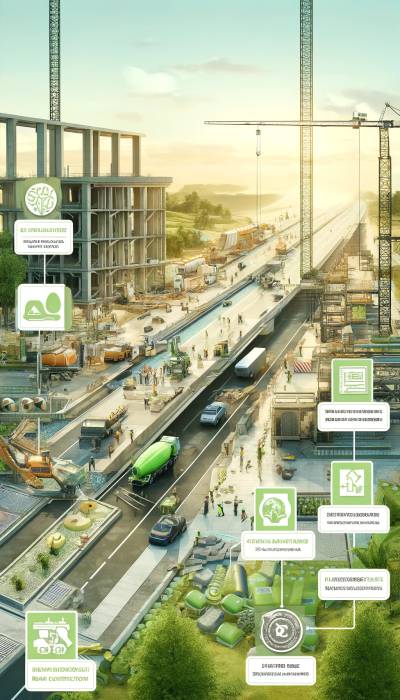
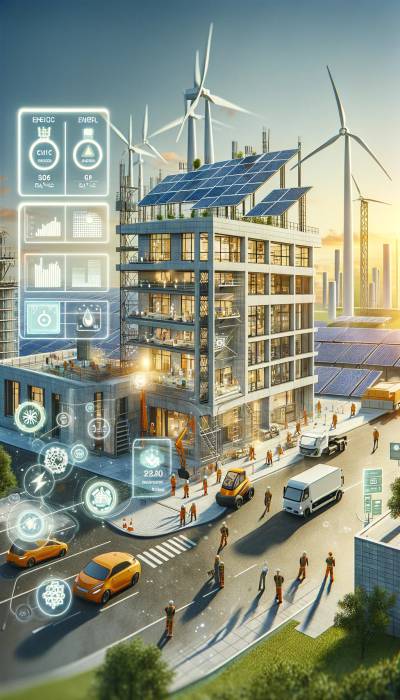
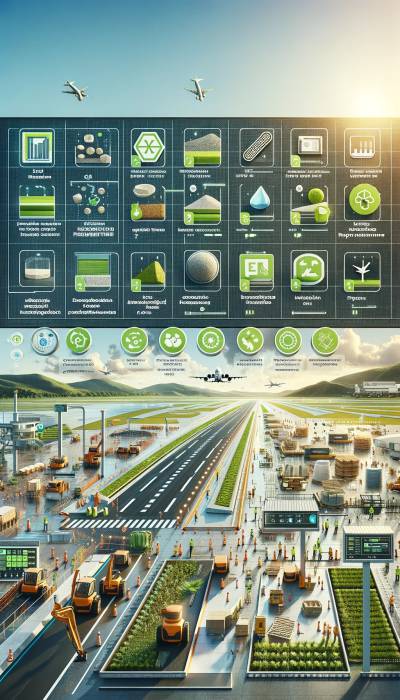
- Leadership in Energy and Environmental Design (LEED): LEED, developed by the U.S. Green Building Council, is one of the most widely recognized green building certification programs. It provides a comprehensive framework for healthy, efficient, and cost-saving green buildings, offering certification for building design, construction, operations, and maintenance.
- Building Research Establishment Environmental Assessment Method (BREEAM): BREEAM is a leading global sustainability assessment method for master planning projects, infrastructure, and buildings. It evaluates the procurement, design, construction, and operation of a development against targets based on performance benchmarks.
- Green Building Initiative (GBI): GBI offers the Green Globes certification, a comprehensive and flexible green building assessment and certification program. It is designed to improve the environmental performance and sustainability of buildings.
- International WELL Building Institute (IWBI): IWBI administers the WELL Building Standard, which focuses on enhancing health and wellness in buildings through design, operational strategies, and performance metrics. The standard is grounded in research and practical application, promoting environments that improve human health and well-being.
- Global Reporting Initiative (GRI): GRI provides a widely used framework for sustainability reporting, helping organizations understand and communicate their sustainability impacts. The GRI Standards offer guidance on how to report on a range of economic, environmental, and social impacts.
- Carbon Trust: The Carbon Trust offers advice, guidance, and certification to help businesses, governments, and the public sector measure and reduce carbon emissions. Their resources include carbon footprinting, energy efficiency, and low-carbon technology deployment.
- Sustainable Construction and Building Materials (SCBM) Journal: SCBM is an academic journal that publishes research on the development and application of sustainable building materials and construction technologies. It provides valuable insights and case studies on innovative sustainable practices in the construction industry.
- Environmental Product Declarations (EPDs): EPDs provide transparent and comparable information about the life-cycle environmental impact of products. They are based on international standards and help companies choose sustainable materials by providing detailed environmental performance data.
- World Green Building Council (WorldGBC): WorldGBC is a global network of Green Building Councils that are transforming the built environment towards sustainability. It provides a range of resources, including toolkits, reports, and guidelines, to support the development of sustainable buildings and communities.
- Sustainable Sites Initiative (SITES): SITES is a comprehensive program for developing sustainable landscapes. It provides guidelines and a certification system to encourage sustainable land development and management practices, ensuring that landscape design and maintenance meet the highest standards of sustainability.
These resources are invaluable for companies aiming to integrate sustainable construction practices into their projects. They offer comprehensive frameworks, certification programs, research, and practical guidance to help organizations reduce their environmental impact, enhance sustainability performance, and create healthier, more efficient buildings.
By leveraging these top resources, companies can stay at the forefront of sustainable construction, contributing to a greener and more sustainable built environment.

Top Global Industry Events for Sustainable Construction
The construction industry is increasingly focusing on sustainability, and numerous global events are dedicated to promoting sustainable construction practices. These events provide valuable opportunities for professionals to learn about the latest innovations, network with industry leaders, and gain insights into sustainable building methods.
Here are some of the top global industry events that promote sustainable construction.
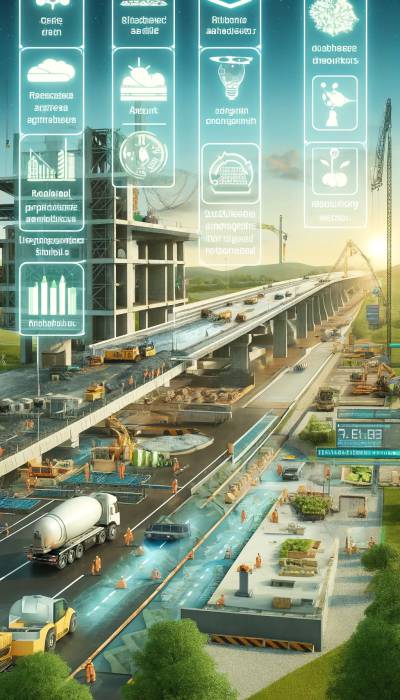
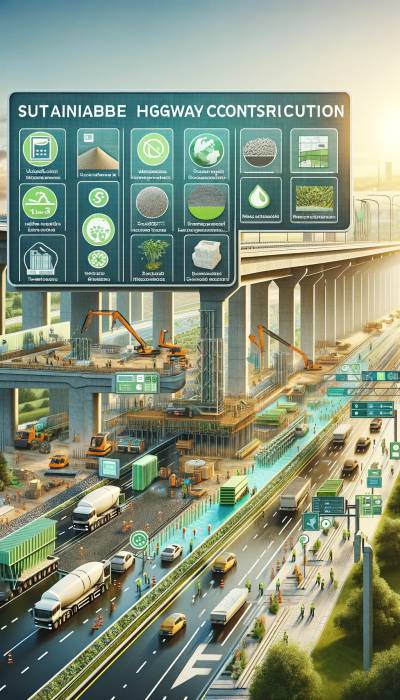
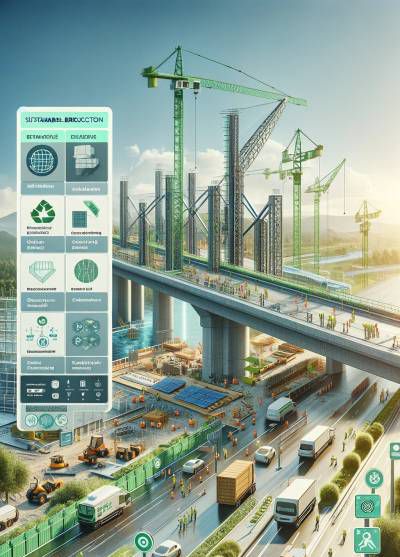
- World Sustainable Built Environment Conference (WSBE24): WSBE24 is a premier event dedicated to sustainable built environments, bringing together experts to share the latest research and best practices. Emphasizing collaboration and innovation in areas such as clean energy, circularity, and urban planning.
- Futurebuild 2024: Held in London, Futurebuild is a leading event focused on sustainable construction and innovation. It features over 500 speakers and numerous exhibitors, offering a platform for industry leaders to engage, debate, and educate on creating a sustainable built environment. The event covers themes such as climate action, retrofit solutions, and digital construction.
- Greenbuild International Conference & Expo: Taking place in Philadelphia, Pennsylvania, Greenbuild is organized by the U.S. Green Building Council. It is one of the largest conferences dedicated to green building, featuring top exhibitors and sessions on sustainable construction technologies, design, and materials.
- The Big 5 Global: Held in Dubai, this event is one of the most significant construction industry gatherings, attracting professionals from over 150 countries. It includes dedicated talks on sustainability, construction technology, and innovative building materials.
- World Future Energy Summit: Held in Abu Dhabi, this summit is a major event focused on future energy solutions. It covers clean energy, water conservation, eco-waste management, and smart cities, providing insights into sustainable construction practices and innovations.
- AIA Conference on Architecture & Design (AIA24): Taking place in Washington, D.C., AIA24 is a crucial event for architecture and design professionals. It addresses environmental, social, and ethical challenges in the built environment, fostering cross-industry collaborations and showcasing sustainable design solutions.
- Nordbygg 2024: Held in Stockholm, Sweden, Nordbygg is the largest construction event in the Nordic region. It emphasizes sustainable building technologies and offers extensive networking opportunities with industry leaders and experts.
- FCON24 Future of Construction Summit: Held in Brisbane, Australia, this summit focuses on creating a progressive, productive, and sustainable construction industry. It features roundtable discussions, panels, and networking sessions aimed at fostering innovation and collaboration.
- Sustainability LIVE Net Zero: Taking place in London, this event focuses on the net zero transition, bringing together global leaders to discuss sustainability, EV and energy solutions, climate tech, and supply chain sustainability.
- World of Concrete Europe: Held in Paris, France, this event is dedicated to the concrete sector, showcasing innovations and sustainable practices in concrete technology. It provides a platform for networking and learning about the latest advancements in the industry.
Attending these global industry events provides invaluable opportunities for construction professionals to stay at the forefront of sustainable practices. These conferences and summits offer platforms for learning, networking, and sharing innovative solutions that drive the construction industry towards a more sustainable future.
By participating in these events, companies and individuals can gain the knowledge and connections needed to implement effective sustainable construction practices and contribute to a greener built environment.

Training, Education, and Certification for Sustainable Construction
As the construction industry continues to prioritize sustainability, the demand for training, education, and certification in sustainable construction practices is growing. These programs equip professionals with the knowledge and skills needed to implement eco-friendly practices, adhere to environmental regulations, and stay ahead of industry trends.
Here are some of the top training, education, and certification resources available for sustainable construction.
- Leadership in Energy and Environmental Design (LEED) Accreditation: The LEED Green Associate and LEED AP (Accredited Professional) credentials, offered by the U.S. Green Building Council (USGBC), are widely recognized certifications in sustainable construction. LEED accreditation provides professionals with a comprehensive understanding of green building principles and practices. The certification process involves coursework, exam preparation, and passing a rigorous examination.
- Building Research Establishment Environmental Assessment Method (BREEAM) Certification: BREEAM offers a range of training courses and certifications for professionals involved in the design, construction, and operation of sustainable buildings. The certification covers various aspects of sustainability, including energy efficiency, water conservation, and materials management. BREEAM certification is recognized globally and helps professionals implement best practices in sustainable construction.
- WELL Accredited Professional (WELL AP): Administered by the International WELL Building Institute (IWBI), the WELL AP credential focuses on the health and wellness aspects of building design and operation. The certification process includes training on the WELL Building Standard, which emphasizes improving human health through better building practices. WELL APs are experts in creating spaces that enhance occupant health and well-being.
- Certified Passive House Designer/Consultant: The Passive House Institute (PHI) offers certification programs for professionals who design and consult on Passive House buildings. These buildings are known for their high energy efficiency and low environmental impact. The certification includes rigorous training on the principles of Passive House design, including thermal insulation, airtightness, and ventilation systems.
- Sustainable Construction Management Courses: Many universities and educational institutions offer specialized courses in sustainable construction management. These programs cover topics such as sustainable building materials, energy-efficient design, and green construction techniques. Institutions like the University of Cambridge and the University of California, Berkeley, offer comprehensive programs that combine theoretical knowledge with practical applications.
- Green Building Certification Institute (GBCI) Training Programs: GBCI, the body that certifies LEED professionals, also offers a range of other certifications and training programs, including WELL, SITES, and PEER. These programs provide professionals with the skills needed to implement sustainable practices in various aspects of building and infrastructure projects. GBCI’s training programs are designed to enhance the expertise of professionals in creating sustainable and resilient buildings.
- National Green Infrastructure Certification Program (NGICP): The NGICP, developed by the Water Environment Federation (WEF) and DC Water, certifies professionals in the construction, inspection, and maintenance of green infrastructure projects. The program includes training on green infrastructure practices, such as stormwater management, and helps professionals implement sustainable water management solutions.
- Online Sustainable Construction Courses: Online Learning offer a variety of online courses on sustainable construction. These courses cover topics such as green building design, sustainable project management, and environmental impact assessment. Online courses provide flexibility for professionals to learn at their own pace and gain valuable skills in sustainable construction.
- Certified Environmental Practitioner (CEnvP): The CEnvP certification, offered by the Environment Institute of Australia and New Zealand (EIANZ), recognizes professionals with expertise in environmental management and sustainability. The certification process includes demonstrating experience and knowledge in environmental practices, including those relevant to sustainable construction.
The growing emphasis on sustainability in the construction industry underscores the importance of specialized training, education, and certification programs. These resources not only enhance the skills and knowledge of professionals but also ensure that sustainable practices are effectively implemented across construction projects. By pursuing these certifications and training opportunities, professionals can contribute to a greener and more sustainable built environment, aligning their careers with the industry’s evolving priorities.

Construction Sustainability Courses
In an era where sustainability is paramount, the construction industry is evolving to incorporate eco-friendly practices and principles. Sustainable construction courses are designed to equip professionals with the knowledge and skills necessary to implement green building techniques, reduce environmental impact, and enhance the efficiency of construction projects.
These courses cover a wide range of topics, from energy-efficient design and sustainable materials to environmental regulations and green building certifications. By enrolling in sustainable construction courses, professionals can stay ahead of industry trends, contribute to a more sustainable future, and meet the growing demand for environmentally responsible construction practices.
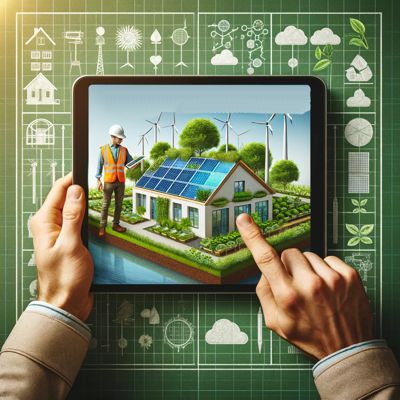
Sustainable Cities Specialization
John Hopkins University
This Specialization is intended for individuals and organizations interested in developing skills and strategies to create and support sustainable cities. T
Through four courses, you will gain a strong understanding of the tools and concepts needed to succeed in reaching this goal. Successful case studies of smart growth applications will be evaluated and assessed for multiple cities throughout the United States.
The concentration will provide students with an introduction to sustainable regional principles and evaluate regional transportation system issues. This is achieved through dynamic video lectures, with many pictures, practical case studies and the evaluation of practices for success. Considerations for smart urban planning, growth, and lifestyle to include strategies for creating equitable, healthy, and sustainable communities are also evaluated. The concentration will also include evaluations of best practices for community involvement, strategies for growth priorities. Plus, green space protection, parks, sourcing quality food from local growers, providing a spectrum of housing availability, integration of office, retail & housing spaces, and the reduction in the urban pollution footprint.
Includes focus on the use of recycled, reusable, green & sustainable products, lower carbon footprint, green buildings, applications of renewable solar & wind energy, low impact storm water management practices, water resource management, resource conservation & more.
This specialization includes four real world case studies that give students insights Into the issues and challenges encountered in sustainable development projects. They include the Fairfax County Virginia comprehensive transportation plan development, the Buffalo Bayou revitalization project In Houston, the 21st century waterfront development project in Chattanooga, and the Pearl project In San Antonio. In all cases they provide students with an in depth learning experience of smart growth strategies for sustainable development.
The four courses include:
- Sustainable Regional Principles, Planning and Transportation
- Sustainable Neighbourhoods
- Sustainable Transportation Networks and Streetscapes
- Transportation, Sustainable Buildings, Green Construction

Adopting sustainable construction practices is a strategic decision that benefits not only the planet but also the people and communities involved. By integrating eco-friendly materials, energy-efficient designs, and advanced technologies, companies can significantly reduce their environmental footprint and promote a healthier workplace.
Sustainable practices also foster positive relationships with local communities by minimizing pollution, reducing waste, and enhancing the overall quality of life. Moreover, these practices often lead to long-term cost savings through increased efficiency and reduced resource consumption. Ultimately, companies that embrace sustainability can enhance their reputation, attract eco-conscious clients, and achieve greater profitability.
Embracing sustainable construction is not just a responsibility; it’s an opportunity to build a better future for everyone.




















